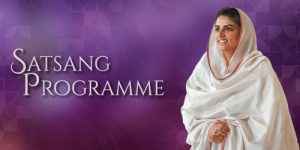As the whole world recoils from the effects of a worldwide pandemic, and we watch on at rising tensions of a superpower at war with one of its neighbours, the need to reflect on a more perfect foundation for life could not come at a better time. Indeed, what is the foundation of a perfect life?
The fact that human beings suffer from a whole manner of ailments or problems, is nothing new. Ups and downs of life are naturally present. Guru Nanak Ji, the founder of the faith community known as the Sikhs, declared some 500 years ago:
Some are physically unwell, some are mentally stressed and others have financial woes; to some extent, everyone is afflicted. Peaceful is only he, who devotes himself to God.
Lord Buddha, on stepping out of his palace, also witnessed much sorrow and discomfort prior to finding enlightenment – his journey of discovery started from seeing the suffering of people around him and wanting to understand how man could be liberated from it (as explained in the doctrine of the four noble truths). Lord Jesus Christ was equally approached by the destitute and the diseased, who sought salvation and joy – his message of love and knowing the Truth that will set you free, has stood the test of time.
Yet in view of the ongoing pain and disillusionment we see in the world it is easy to come to the conclusion that there is no such thing as a perfect life, and no real freedom from suffering. Bearing in mind that we are surrounded by problems, both consuming and never-ending, we may even question the existence of a loving God.
However, from a personal standpoint, I have found such a sceptical viewpoint to be far from reality. I have found that if the foundation is strong, then no matter how destabilising the turbulent winds may be, we can remain grounded and rooted. This is exactly what I experienced in 2018.
I went through a very difficult time. Had my faith in Nirankar (the Formless All-Pervading) not been steadfast, I would not have been able to write this article – infact, I would have been totally lost! What is required are the essential ingredients that build a strong foundation, which HH Nirankari Mata Sawinder Ji summed up as follows:
In Divine love there’s but one rule that’s true
In acceptance of You, I accept all that You do
When we have God as our foundation, we accept all as per Divine will. This alleviates our sense of doership, frustration, dejection and attachment. When we appreciate that everything is written by The All-Knowing; we are simply here to learn and evolve in the process. It’s a tricky balance, to live with right conduct and responsibility in the world, whilst also being an observer of the play or leela that the Creator is directing.
At this stage, we may ask, if God is the foundation, then where do we find such a God? How do we come to know such a Creator? Indeed, with a plethora of religions and Holy Prophets to choose from, how do we know which one to choose, and who to follow?
It is my conviction that all Sages, Seers and Prophets came for one reason – not just to connect us, but to teach us how to realise God, before worshipping Him. Hence, we must search for the One, who makes us feel whole. Just as in our search for a good doctor, we look to the health outcomes of his patients, so we can look for those devoted souls who are whole and unperturbed, inspite of the challenges of life.
Furthermore, someone who truly knows and lives with God can help us achieve the same experience. Such a Guru does not merely train us in mantras or yogic exercises and certainly does not limit us to prayers and hymns. Neither does he simply talk about God. A True Guru reveals the Truth through the revelation of Gyan, variably known as the Word or Naam. In the Bible (John, 1:1) it is said:
In the beginning, there was the word, and the Word was with God,
and the Word was God.
The Sampuran Avtar Bani, verse 311, clearly describes what the benefits of Naam or the awareness of God, are:
Name – is panacea of all ills
Remedy for – every disease
Oh! So mighty is the Name
It rights wrongs with ease!
Ones devoid of divine light,
Name shows them the way
Every home Name inhabits
Becomes a heavenly array!
Perfect Master – Oh’ man,
Only deals – in divine Name
Knower of Him is, Nirankari
For He is Nirankar in Name
The Naam or Word is to live in the perpetual awareness and remembrance of God. It is to personally connect with God. It is such union that leads to a different perspective on life.
When we look at ourselves as spiritual beings having human experiences, and not human beings having spiritual experiences, then we can truly be in the world, but not of the world. It is akin to the Shakespearean verse,
Nothing is good or bad, but it’s the thinking that makes it so
-Hamlet
This awareness transforms our thinking to an elevated state. Indeed, when we accept everything as the creation of the Perfect God, and see God infused in every particle of existence, we develop faith that the Almighty Father can, does and will protect us in every situation. We can sit on His shoulders comfortably, without pain, anguish, stress or fear. Difficulties will still be inevitable, for such is life, but we will no longer choose to suffer.
It is said, Ignorance is Bliss. Indeed, overthinking situations can lead to anxiety, and it can be helpful to step aside from them, perhaps through distraction or engagement in some other more positive pursuit. However, ignorance should never extend to our relationship with God, for without God as our foundation, we tend to have faith in our name, our fame, our money, our connections and our intelligence, inspite of knowing they will all fail us. Even this very body we have faith in, will grow old and frail.
Perfection, if at all it can be attained, may be considered an ideal. It is really a state of mind, which in turn produces a certain state of being. Ironically, whilst someone in a palace, with every amenity at his disposal, may be miserable, someone in a hut, poor and destitute, may be grateful for the little he has. Such is the power of the mind – it can make a heaven of hell, or hell of heaven (John Milton)
With Maslow’s hierarchy of needs, we can see that self-actualisation and transcendence are at the very top, but they only come about when all other needs – i.e. physiological, security, belonging etc. – are met. However, I have experienced that when we see our surroundings and situation as the Lord’s grace, we can overcome every adverse situation, or at least manage it with dignity.
Indeed, Acceptance, Gratitude and Faith are by-products of a Spiritual Life that has God at its foundation. With such a perspective, we can find the perfection in the imperfections; the positively yielding in every adversity; and the Creator in the vast creation.
– Sudhir Kundi, London








